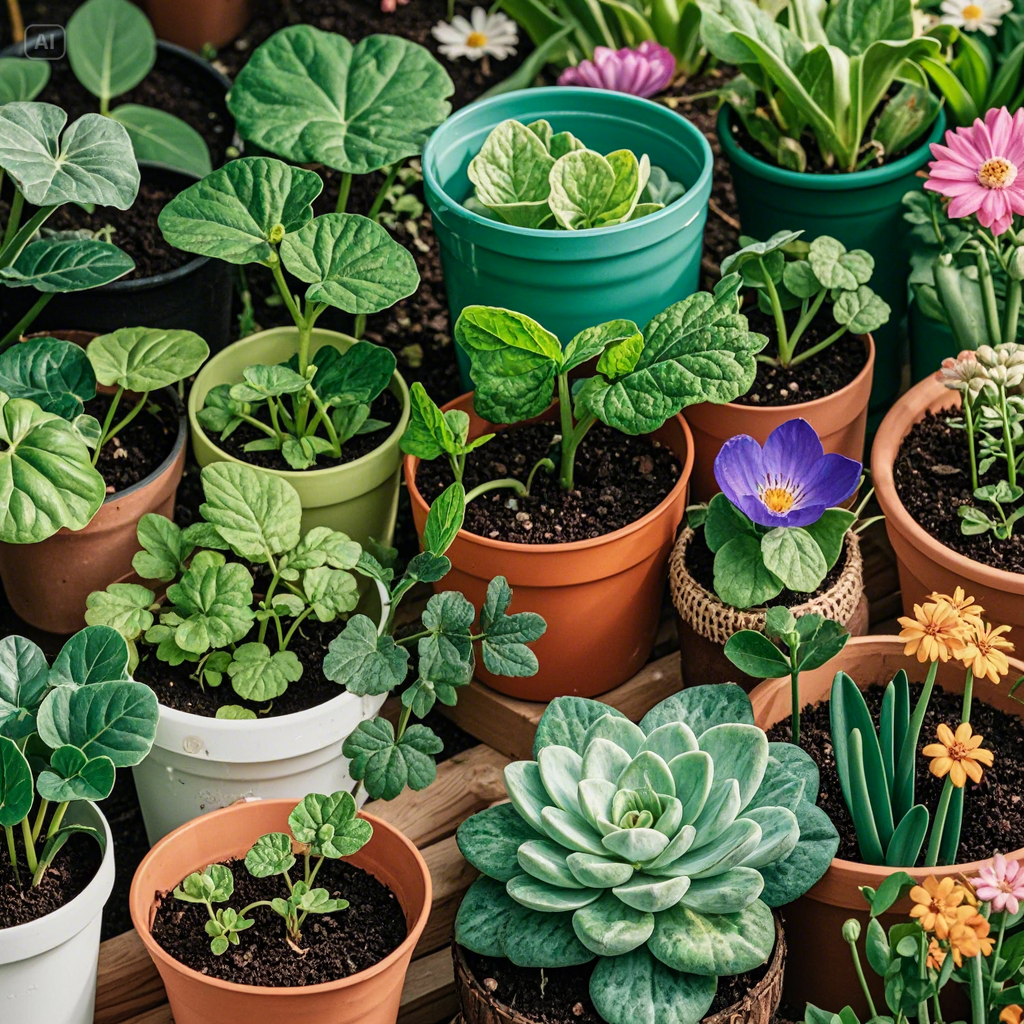
Sustainable Gardening: Practices for an Eco-Friendly Garden
A Garden Grown from Guilt (and Hope) Let’s be honest: starting a garden is a feel-good project—until you realize your plastic pots, synthetic fertilizers, and weekly trips to the garden center don’t exactly scream eco-warrior. The good news? Your garden can still be a haven for both your veggies and the planet.
Whether you're growing your own food to avoid supply chain stress or just love digging in the dirt, sustainable gardening is the ultimate act of self-sufficiency meets environmental love. And yes, even your gloves can be guilt-free.
🌿 Why Sustainable Gardening Matters Sustainable gardening isn’t just about pretty plants. It’s a full-circle approach that:
Protects the soil through composting and cover crops
Supports biodiversity with pollinator-friendly planting
Reduces waste by reusing materials and minimizing plastics
Conserves water through smart irrigation and mulch
Grows food with intention—no chemicals, just care
It’s about growing with the planet, not against it. And it starts with small, smart swaps.
♻️ Zero-Waste Gardening: Less Trash, More Tomatoes One of the most powerful ways to green your green thumb? Go zero waste in the garden. Here’s how:
🔁 Reuse, Recycle, Repurpose Old buckets become planters.
Toilet paper rolls make great seed starters.
Broken terracotta pots? Instant drainage support or path edging.
🌿 Compost is King Composting kitchen scraps, yard waste, and even shredded paper reduces landfill load and feeds your soil like magic. Think of it as your garden’s all-natural multivitamin.
🌧 Collect That Rain A simple rain barrel setup can slash your water bill and help you irrigate responsibly. Bonus: plants love untreated rainwater.
🧤 Recommended Products: Eco-Friendly Garden Picks Every green thumb needs the right gear—and it doesn’t have to cost the Earth (literally or financially). Here are our favorite eco-conscious tools for a low-impact, high-yield garden.
🧤 Recycled Gardening Gloves Why we love them: Durable, breathable, and made from plastic bottles or recycled textiles. Perfect for planting, pruning, or hauling compost like a pro. → Explore our favorite eco-friendly gloves
🔨 Bamboo Garden Tools Why we love them: Biodegradable handles, sleek design, and just as sturdy as conventional tools. A win for your hands and the planet. → Discover sustainable garden tools
♻️ Compost Bins (That Don’t Stink!) Why we love them: These odor-free bins make composting easy—even for beginners. Choose one that suits your homestead style, from DIY to tumbler. → See top compost bin picks
🌸 Planting for the Planet: Choose Wisely 🌼 Go Native Native plants are adapted to your local environment, which means they require less water, fewer chemicals, and attract the right kind of bugs (the helpful ones).
🐝 Be Pollinator-Friendly Skip the sterile hybrids and plant blooms that bees, butterflies, and hummingbirds love. Lavender, echinacea, and milkweed are all stars in this arena.
🌾 Soil Health = Human Health What you feed your soil is what ends up feeding you. Healthy, living soil packed with organic matter produces more nutrient-dense crops. Avoid synthetic fertilizers and opt for:
Homemade compost
Worm castings
Organic amendments like kelp or alfalfa meal
Your carrots will thank you—and so will your gut.
🌍 A Garden That Gives Back Sustainable gardening is about more than growing food. It’s a quiet protest against waste, chemicals, and overconsumption. It’s reclaiming control over your plate. And it’s something you feel in every bite of sun-warmed tomato and every beeswax-gloved harvest.
Whether you’re nurturing a quarter-acre homestead or just a container garden with dreams, each plant is a step toward a more self-sufficient, less wasteful life.
🌟 Ready to Dig In? Start with small changes. Swap in recycled gloves. Compost those veggie scraps. Choose native plants. You don’t have to overhaul everything overnight—gardens grow slow for a reason.
🌿 Explore our favorite eco-friendly picks and plant the seeds for a more sustainable future.
